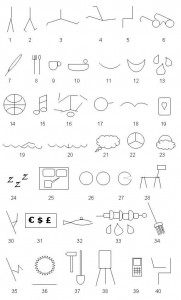present continuous
Present Continuous
The present continuous describes an action that is taking place at the moment.
It also talks about certain short-term or temporary activities occurring in general, though not necessarily at the moment.
Review: Verb Forms
| Base Form |
Past Simple |
Past Participle |
| harvest | harvested | harvested |
| finish | finished | finished |
| cry | cried | cried |
| think | thought | thought |
| drink | drank | drunk |
| begin | began | begun |
Basic Structure of the Present Continuous
In previous lessons, we saw how the verb be functioned as a linking verb. See LINKING VERB.
Here we look at how be acts as an auxiliary verb (helping verb) to other verbs: in this case, the present continuous. See AUXILIARY VERBS.
The present continuous is formed with am, are, is; and the present participle or the “ing-form”, or (verb-1)-ing.
See ING-FORM.
|
(+): Subject + am/is/are + ing-form. (-): Subject + am/is/are + not + ing-form. |
With I
| (+): I + am + ing-form. (-): I + am not + ing-form. |
Examples:
• Well, not right now I can’t…I am washing the dog.
• Don’t bother me; I am watching my favourite soap opera.
• I’m not working at the moment; I’m on sick leave.
• I’m busy these days—I’m building a cottage on my grandmother’s property.
Incorrect: I amn’t working. Correct: I a not working. Or, I’m not working.
Colloquial or “bad English”: I ain’t making no noise. Good English: I am not making any noise; it’s Jim.
We, You, They
|
(+)/(-): We/You/They Jakob and Wilhelm+ are (not) + ing-form. The medics/His goats |
Examples:
• The Boy Scouts aren’t swimming in the lake today. They’re hiking in the forest.
• The Queen and the King are visiting the devastated areas.
• Their daughter and her friend are filming their trip in Nepal.
• You! You’re not doing anything. Go and help them.
She, He, It
|
(+)/(-): She/He/It Dr. Chazan/Her band + is (not) + ing-form. The drummer/My SUV |
Examples
• Your car is rolling down the hill.
• This is our niece, Irina. She is studying orthopedics at a medical university.
• A young man is filling out an application form in the reception.
• Supropto isn’t us
Answer the following questions for each picture.
1. Where is this place?
2. Who is this person? Who are these people?
3. What is Geronimo (or Heidi, Reza, Gavril, Vajiravudh, Ioana, Shayma, Satoshi, or you) doing? What is he or she doing? What are they doing?
4. What things do you see?
5. What will happen next?
0
Here are some questions for the following pictures.
1. Who is this person? He/She is . . . .
2. Where is this place? This is . . . . Where is he or she? She is in . . . .
3. What country is this in? This is . . .
4. What season is this? What month of year is this? It’s . . . because . . .
5. What time of day is this? Is it morning, mid-morning, noon, afternoon, evening or night?
6. What can you see? What do you see?
7. Approximately how old is he? Is this a baby, child, teenager, young adult, middle-aged or old? He is about . . .
8. What nationality is she?
9. What is he wearing? He is wearing . . .
10. What is she doing? She is . . .
11. Why is he doing this? What is he trying to achieve or accomplish?
12. What is her job, profession or occupation?
13. What are her goals and ambition?
14. What is his socio-economic class? Is he lower-class (poor), lower-middle (working) class, middle-class, upper-middle class or upper class (rich)?
15. Describe her family? What is this person’s marital status? Is he or she single, cohabiting, engaged, married, divorced, widowed?
16. What are his hobbies or likes? His hobbies may be . . .
17. What is thinking about? She is thinking about . . .
18. How does he or she feel? Is he or she happy, sad, angry?
| amused | anxious | ashamed |
| care-free | confident | distressed |
| ecstatic | depressed | embarrassed |
| focused | furious | heart-broken |
| in-love | impatient | humiliated |
| nervous | panicked | overjoyed |
| proud | relaxed | raging-max |
| thrilled | satisfied | stressed |
| worried | absorbed | wondering |
19. Does he or she have any problems, challenges or difficulties?
20. What will happen in the future? What is he or she going to do?
21. Describe his or her character or personality:
| jovial | civilized | adventurous |
| whore | arrogant | high-class |
| busy | ambitious | broadminded |
| hippie | conceited | complaining |
| smart | confident | conservative |
| calm | cheater | hospitable |
| cold | corrupt | aggressive |
| cool | haughty | dishonest |
| crazy | friendly | disciplined |
| dumb | feminine | down-to-earth |
| caring | helpful | emotional |
| tough | extrovert | flamboyant |
| greedy | low-class | generous |
| bossy | hopeless | head-strong |
| crass | helpless | chauvinist |
| honest | care-free | hot-tempered |
| gentle | violent | double-faced |
| macho | illiterate | hyperactive |
| crude | sensitive | masculine |
| mean | ignorant | compassionate |
| rude | insulting | understanding |
| lout | insane | intelligent |
| strong | forceful | troublemaker |
| lazy | bashful | irresponsible |
| liar | liberal | immature |
| rough | humble | ill-mannered |
| sissy | selfish | sympathetic |
| mature | modest | narrow-minded |
| noisy | talkative | party-animal |
| rocker | childish | xenophobic |
| proud | passive | responsible |
| racist | radical | powerful |
| serious | playboy | sentimental |
| sly | show-off | treacherous |
| slut | barbaric | snobbish |
| bum | stupid | thick-skinned |
| shy | introvert | troublesome |
| vain | vulgar | uneducated |
| weak | anxious | womanizer |
| stingy |
1 2
2
3 4
4
5 6
6
7 8
8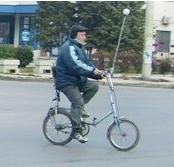
9 10
10 11
11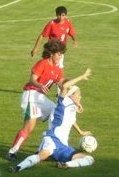 12
12 13
13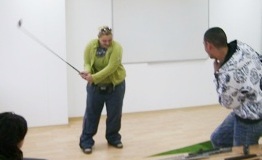 14
14 15
15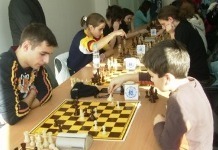 16
16 17
17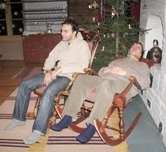 18
18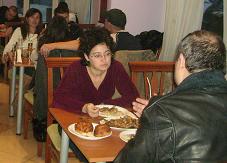
19
20
